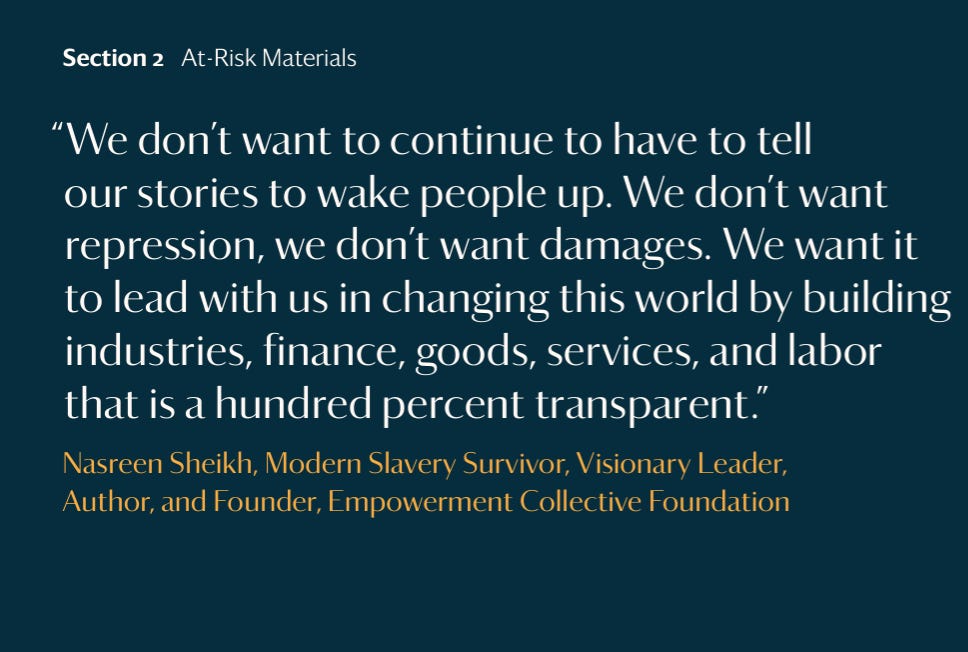Grace Farms releases international guidance
PVC, other building materials, flagged for human rights abuses
Grace Farms, the leading voice against the use of forced labor in building materials, has released new international guidance.
With contributions from more than a dozen leading international experts, The International Guidance & Toolkit shines a light on critical issues related to forced labor in the building materials supply chain, including the legal landscape, the importance of compliance, the role insurers and investors can play to ensure our building materials are not embedded with forced or child labor, and the growing issue of prison labor. The International Guidance and Toolkit builds on Grace Farms’ Design for Freedom Toolkit (2022) and the Design for Freedom Report (2020).
The International Guidance and Toolkit provides information on 12 raw and composite materials that are at high risk of forced and child labor. These materials, which include glass, PVC plastics, concrete, steel, and bricks, are some of the most commonly used in the built environment today. They are often extracted and produced in brutal and inhumane conditions in countries throughout the world. By better understanding the supply chains of these materials and using the relevant tools presented here, design and construction professionals can prioritize human rights and ethical procurement, while meeting health and climate project goals
Jim Vallette, president of Material Research, provides a risk analysis of polyvinyl chloride (PVC) plastics. He writes,
About 10% of the world’s polyvinyl chloride (PVC) plastic is manufactured in the Xinjiang Uyghur Autonomous Region (XUAR) governed by China. A 2022 report, Built on Repression, traced the flow of PVC from factories in the province.
These companies have been active participants in the XUAR’s notorious labor transfer programs. The government has forcibly relocated many thousands of Uyghur people from their home villages to work in the plastics factories. PVC from Xinjiang has been used to make vinyl floors at a huge factory in Vietnam.
A flood of ‘luxury vinyl’ floors from Vietnam entered U.S. home improvement stores and most name-brand flooring distributors in the early 2020s. By early 2023, U.S. Customs and Border Protection halted all imports of flooring suspected of having ties to the Xinjiang region factories. It also placed the factories named in Built on Repression on a list of banned entities. Xinjiang PVC factories continue to export resins to other countries, especially those of the former Soviet Union. Manufacturers in Russia, Kazakhstan, and elsewhere export flooring, PVC trim, and foam board to the global market. PVC resins have also been known to be exported to a flooring company in India that in turn exports floors to the U.S. and worldwide.
The Grace Farms guidance also features analysis by friends of Material Research, Jonsara Ruth and Alison Mears (Healthy Materials Lab), on paints and coatings.





